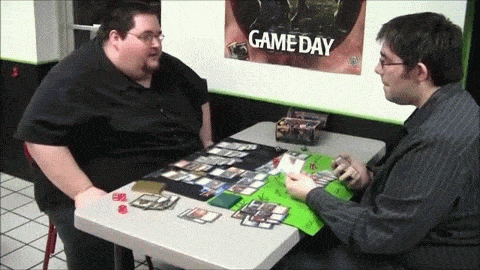Dalliances to Obsession, the continuum of pastimes
Dalliances, hobbies, obsessions and passion. Which are you following now?
We all have interest in our lives in varying degrees. There’s things we’re somewhat interested in, where we maintain a passing familiarity. There’s things we’re keen on, where we go out of our way to learn/experience more about it. There’s things we’re extremely interested in, where we spend a measurable percentage of our income on them and no small amount of time, to boot. Then there’s the things we devote our lives to, to the detriment of all else. This hierarchy is highly personalized and by no mean standard. Where we put things on this continuum is part of our identity as humans. How we express and classify our interests is no small part of how we make up our self and interact with each other. To that end, it becomes nigh impossible to really create an apples-to-apples comparison of activities when they can be so subjectively dissimilar.
Part of the issue with those different interests is that, while it’s difficult to compare them directly, we’re compelled to do so. We exist to compare ourselves to each other in an effort to either relate or dominate one another. Because of this, the inevitable measuring competition will arise and will also cause nothing but consternation and alienation. If you painstakingly break down every identifiable characteristic of each hobby and then try to compare them, you’ll still find yourself at the mercy of yet another subjective argument, only this time masquerading as objective attributes. Though, despite our urge to determine whose hobby is better and, by extension, who is morally superior to the other, can only be a complete waste of time unless we can find or extrapolate some sort of interesting comparison that isn’t linked directly to valuation or hierarchy. From that standpoint, comparisons are possible (even if somewhat arbitrary).
To that end, the notion of identifying and articulating facets of a pastime might allow us to identify our motivations behind them and maybe have a serious conversation about what that means. Many interesting conversations can happen in this sphere if one can leave behind the need to be Right or Win or have the moral high ground.
One of these conversations could center around, for example, the competitive nature of most card-based games (especially the deck building, living/collectible variety). When stripped to their core, deck building games can be broken into several discrete states of play, each with different levels of motivation and personal appreciation between players. How one wishes to articulate those differentiations can vary, as can the prioritization, but there’s one particular distinction that’s fairly easy to draw: competition vs non-competition. For these card games, all interactions are competitive, by their nature, with exactly one exception: building a deck. Unless you count the elaborate meta-game of searching/talking/interacting/networking/etc. As an aspect of the game (I don’t), then this is the one spot that you’re not in direct competition with someone else. You’re performing the meditative, singular and self-oriented task of creating a deck that will provide you with the arsenal to achieve a particular goal. Otherwise, the entire game is concerned with competing against other players.
Competition is not intrinsically bad, by any means, but the underlying implication of any competitive interaction is that there will be a winner and a loser. This is the core philosophy of the above mentioned card games (and of most games). One can play a game non-seriously and be prepared to lose or win without caring, but that doesn’t change the binary win/lose dichotomy. There’s no concept of a drill or practice that has no winners/losers. There’s no concept of any other activities that aren’t “playing the game”, for better or worse. This isn’t good or bad, it’s just an aspect of a fundamentally competitive pastime. At the end of the day, humans are competitive in our very nature and games like these are a cathartic outlet for those drives and urges. At least, as long as we’re playing these games, we’re not engaging in truly confrontational or violent activities
-Kendric


